We kindly inform you that, as long as the subject affiliation of our 300.000+ articles is in progress, you might get unsufficient or no results on your third level or second level search. In this case, please broaden your search criteria.
This paper analyzes structural indicators of economic efficiency and energy intensity consumption as determinants of sustainable economic development for the selected 33 European countries. The correlation, regression and multivariate factor analyses are applied to test the associations between the selected structural variables of energy intensity consumption, economic efficiency, and the main driving forces behind these developments. Economic efficiency is positively associated with expenditures on research and development (R&D) and a greater technological intensity of exports, while at the same time the economic efficiency of R&D expenditures and technological intensity of exports reduce the energy intensity consumption of the economy. The results suggest that management strategies and policies directed towards R&D expenditures, human capital investments, and technologically intensive export oriented products are improving economic efficiency performance and contributing to energy saving sustainable economic development. The technological intensity of products reduces energy consumption, which is related to restructuring of energy intensive industries into more advanced and energy saving ones with higher value added per unit of product, but with lower energy consumption per unit of product.
More...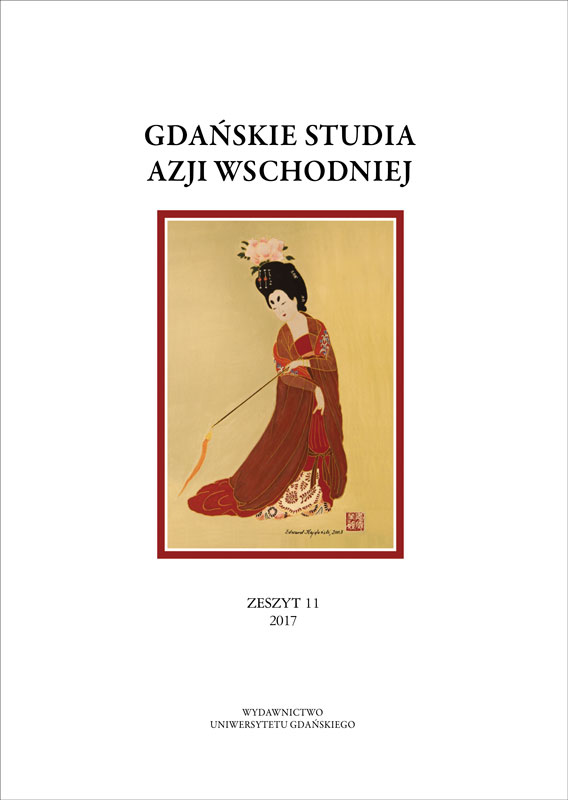
China, after years of an international isolation, begins to play a more extensive role in the world. It becomes the main world player in every branch of a single nation’s activity, starting from economy through military to social and culture areas. One of the probes of the international rebirth of this great nation is its diplomatic relations with Vatican. The reason diplomatic relations with the state of Vatican were for some time out of discussion was the Chinese ideology. After it was abandoned, it appeared there are only two issues implicating those relations: Vatican’s diplomatic relations with Taiwan and the Chinese Catholic Church’s wish to remain independent from the Pope.The last few years show the meaningful change of the Chinese and Vatican’s approach to the problem: it appears that the, so called, border issues are defined. Vatican expects China to acknowledge the Pope as the head of the universal Church, whereas Vatican is supposed to revise its diplomatic relations with Taiwan – Vatican is now the only state in Europe to maintain the diplomatic links with Taiwan. In the research, the author has traced back the tangled relationship between the Holy See and the Middle Kingdom starting with the first footprints of Christianity in China to the current situation, when the significant thaw in bilateral relations takes place. Concluding, the article shows the signs of the real reestablishing of diplomatic relations between those two very specific states.
More...
The pension scheme in Poland is a subject to many detailed regulations, like for instance a way of investing financial measures in Open Pension Funds members accounts, manner of the evaluation of the operations of Universal Pension Funds, ceiling of payments taken from members Open Pension Fund. These Regulations have the direct effect for the investment policy managing the Open Pension Fund which directly influences the state of financial measures of their members. The study is bringing closer this subject matter, appearing relations and their effects for members of the II pillar of the pension scheme in Poland.
More...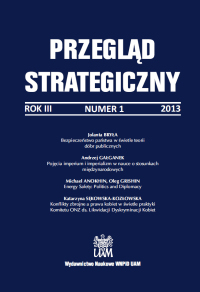
This article concerns functioning of the central bank in the financial safety net of the country. It is characterized by the concept of security, financial security and its objectives. The author then presents the central bank as the main entity of the financial security of the network by presenting its main activities. They are the subject of discussion in the following part of in this article. These include: the function of lender of last resort, the function of preventing destabilizing the financial system (banking supervision), attention to safety and efficiency of the payment system, conducting the information policy. The author refers to the experience of the ECB, the NBP, the Bank of Sweden and the Federal Bank of Germany related to the atcivities of the financial safety net of the country. In conclusion, the author states that the central bank should play an active role in the financial safety net of the country.
More...
In this study, given the properties of Spatial Price Equilibrium Model introduced by Samuelson (1952), nearly a century of the economic trajectory of Turkey is analysed and considered as an extensive bridging process contributing to and affecting the growth and development of the country. As a content of this study, for each form of disconnectedness, there exists a form of bridge typology enabling spatial unification with its corresponding applications on space and politics. As opposed to all unifying bridging processes in society and space, all dis-unifying preventive policies and activities are evaluated within the context of Three Bridges.
More...
The paper tries to analyze the effect of the change of tax rates for VAT for certain categories of goods in budget revenues and economic development of Kosovo. VAT in Kosovo is applied since 2001 and is indirect tax on consumption that brings the main revenue to the state budget. Therefore, the research focuses on whether the changes made to the VAT rates in September 2015 have had its increasing effects or decreases in some products' prices, increasing or decreasing their budgets and with this impact on development economic indicators expressed through the GDP. Through the econometric model and regression analysis for the period 2013-2016, is evaluate the impact of VAT on economic growth and development.
More...
This paper assesses the impacts on private sector poverty of changes in the within inequalities of expenditure and income sources. This paper employs the most recent Cameroon Household Consumption Survey which provides the necessary data for our analyses. Our results showed that the largest impact on poverty is registered with increasing food inequalities and the smallest with increasing health inequalities. Concerning regressed income sources, we found that the highest increase in poverty incidence is recorded by increasing inequalities in human capital. Our results also underlined that if we only have a small proportion of private sector workers who are vulnerable in employment, poverty depth will reduce appreciably. Importantly, we observed that the marginal poverty impacts and elasticities of within-component inequalities are sensitive in magnitude to the choice of poverty aversion measures and poverty lines. The government of Cameroon should invest in a system of education that reduces the number of dropouts at primary and secondary levels; this should be probably a system of education that meets the demands of the labour market. If policy provisions allow for only a small proportion of private sector workers to be vulnerable in employment, poverty depth will reduce considerably.
More...
This study sought to examine the relationship between the aggressive/conservative current asset investment and financing policies for six manufacturing firms listed at Ghana Stock Exchange for a period of 2000-2013. Data were sourced from the annual reports of the firms and the publication of Ghana Stock Exchange. Descriptive statistics, One-way ANOVA and rank order correlation were used for analyzing the data. The results revealed that the listed manufacturing firms were following moderate working capital management policies. The study found significant differences among the current asset investment policies across different firms. However, no significant differences were observed for firms’ policies concerning relative aggressive/conservative current asset financing. Additionally, these significant differences or otherwise are not stable over time with the instability more prevalent in the current liability management.
More...
As domestic markets have become saturated, multinational corporations (MNC) are turning their attention to international markets to increase their market share, revenues and their profits. MNCs activities have become increasingly global in scope, whereby going abroad is crucial if they are to succeed. This process is a challenge because the MNCs needs to overcome the barriers which hinder their entry into the targeted markets. They have to map outan entry strategy and choose the right entry mode. The focus of this paper is on how General Motors (GM) as a MNC can launch the Swedish SAAB brand of cars into India. Our analyses, which cover the period up to 2010,suggest that the best way to penetrate the Indian car market was by choosing the mix between exporting and local assembly as their entry mode. This helped GM to successfully penetrate its products, control investments and increase its competitive strength against domestic and foreign firms within the Indian market. Although recently the SAAB is in difficulty and almost bakrupt, the importance of this paper rests on the lesson how car manufacturers can enter foreign markets, especially in India.
More...
This paper undertook an analysis to decipher the degree to which stock exchanges’ environmental proclivity has influenced companies’ environmental commitment. The paper is pertinent, as stock exchanges have often been criticised as instruments of capitalism hegemony, it thus helps to assuage such criticism given the paper’s findings about the growing environmental advocacy of stock exchanges to blend with their core economic objective to ensure environmental sustainability. The paper adopted a quantitative approach using the ordinary least square (OLS) technique with time series data from the Carbon Disclosure Project archive showing the number of companies engaging in carbon disclosure over the years. Holding other factors constant, and at an alpha of 0.05 significance level, findings from the analysis show that growth in stock exchanges’ environmental initiatives has contributed a positive and significant booster to corporate environmental commitment at P level of 0.020 significance, using number of carbon disclosing companies as a proxy for environmental commitment. The paper also found that the launch of the United Nations Sustainable Stock Exchanges in 2009 provided an additional impetus that has accelerated the environmental sustainability momentum of stock exchanges. The paper recommends further research on the extent to which corporate carbon commitments has resonated with pragmatic carbon reduction.
More...
This study empirically examines the determinants of government expenditure in South Africa over the period 1970 to 2016. The study employed the Johansen-Juselius cointegration test and error correction techniques. The results revealed that there is a long-run relationship between government expenditure and its determinants. The study found that urbanization rate, national income, poverty rate and the wage rate significantly influence the size of government expenditure in South Africa. Therefore, the study recommend that government create job opportunities, increase its expenditure in developing rural areas, and find ways to manage the public sector wage bill. The study concludes that population growth, trade openness and inflation, are not important in determining government expenditure in South Africa.
More...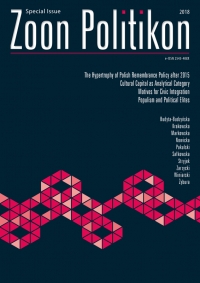
The paper recognizes mechanisms of capital conversion among given social games, which allows in turn to explain the process of commodification of morality. Conclusions depicting the structure of relations between the financial and moral capitals are used to analyse two practical examples: the concepts of SDG and CSR. The paper proposes a useful way of addressing phenomena on the borderline of economics and ethics, which allows to formulate further research problems.
More...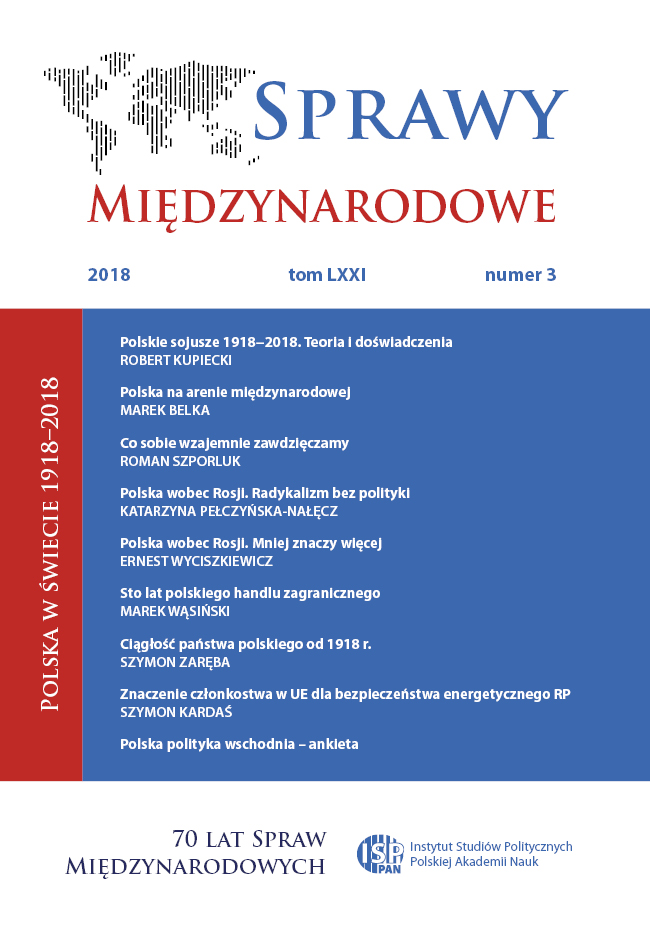
This paper gives a short overview of one hundred years of Polish history in the area of trade on the occasion of the centenary of Poland regaining its independence. Four periods – the interwar period, decades of the Polish People’s Republic, the transition period from 1989 to 2004 and Polish membership in the European Union – are analysed to show that during these one hundred years, Poland had to build its trade and economy from scratch thrice. The paper focuses on the most important trends and looks into the geographic and product structures of trade. Unsurprisingly, the results show that the most dynamic growth and the most positive changes are observed in Polish trade during its membership in the European Union.
More...
Economic evolution has a major impact on the social stability and national security with all its components. Consequently, the evolution of economic indicators in a negative direction affects the economy as a whole, as well as security with all the sectors that make up. Analyzing the national economy, certain categories of risks can be identified which may have an impact on economic security, such as: commercial risks arising from non-compliance with contractual provisions consisting in failure to pay in the relationship between traders, indirectly reducing the amounts paid to the State; tax hazards that consist of diminishing or hiding taxable measures by taxpayers, thus reducing the sums collected to the village budget; competitive risks that have the highest degree of monopolisation of the national economy and which have the effect of increasing structural inflation, lowering the level of quality of goods and services and supplying inflationary stocks; financial risks caused by the degree of protection of market funds, consisting of deposits with banks and investments in the capital market; foreign exchange risks arising from the foreign currency depreciation of the domestic currency.
More...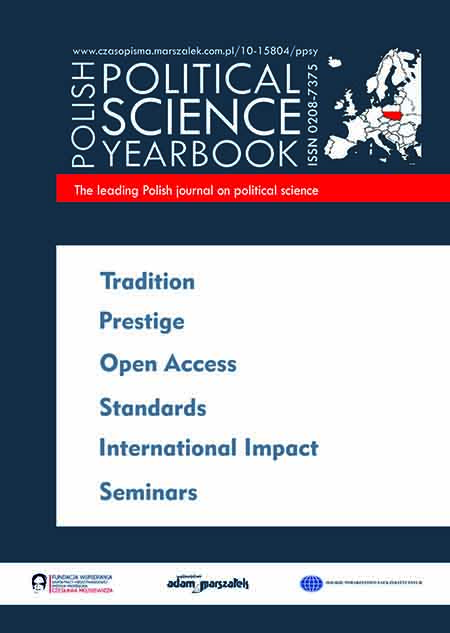
The existing multilateral trade regime is often beleaguered for unfairly privileging its Western guarantors. Since not all countries command the same opportunity sets to compete in global markets, world trade rules sanction über-rich markets to extend autonomous trade concessions to capital-poor countries without demanding any reciprocal treatment. Given the entanglements of trade in the thorny issues of international development and distributive justice, this paper joins a crowded trade as/and fairness debate by judging how the present global economic order (dis)favors developing and least developed countries on the basis of equal opportunity. In a Roemerian-Rawlsian reading of economic fairness, I start by elevating the demands of diffuse reciprocity over the misguided minimalism of mutual reciprocity in a twin attempt to morally defend asymmetric exchanges between asymmetric trading partners and to redress background inequalities in access to the merits of commerce. While the notion and praxis of altruism in international trade generally allude to northern democracies in modern political thought, this article also unmasks parallel models of special and differential treatment projects lorded over by two seemingly unusual suspects: the Eurasian Economic Union and the People’s Republic of China. In juxtaposing weak and strong conceptions of equal opportunity vis-à-vis leading compensatory measures presently open to needy nations, I articulate how the strong standard of equal opportunity is partially cantilevered by existing level-playing-field structures and yet brutally bulldozed at once by the politics of donor discretion. Finally, although a diluted form of diffuse reciprocity grows more fashionable among affluent and emerging economies, unlocking the strong standard of equal opportunity still insists on a solidaristic system of preferences to diffuse both opportunities and obligations arising from a less tilted trading order as widely and deeply as possible.
More...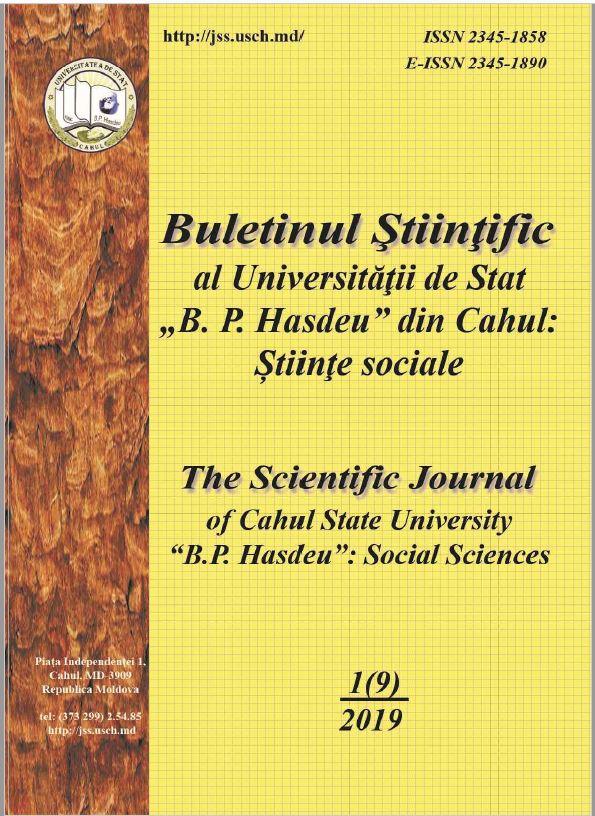
The evolution of employment depends directly on the relaunching of the economy and, in particular, on the investments, which will create conditions for the emergence of new jobs in all sectors of activity. Although the economy will generate new jobs, they will not be enough to cover redundancies and, in particular, will not meet the demand for new jobs on the labor market There is a need for a focus on regional labor policies, where there is greater scope for adjustment and capitalization of local resources and the need for an active employment policy to ensure labor mobility.
More...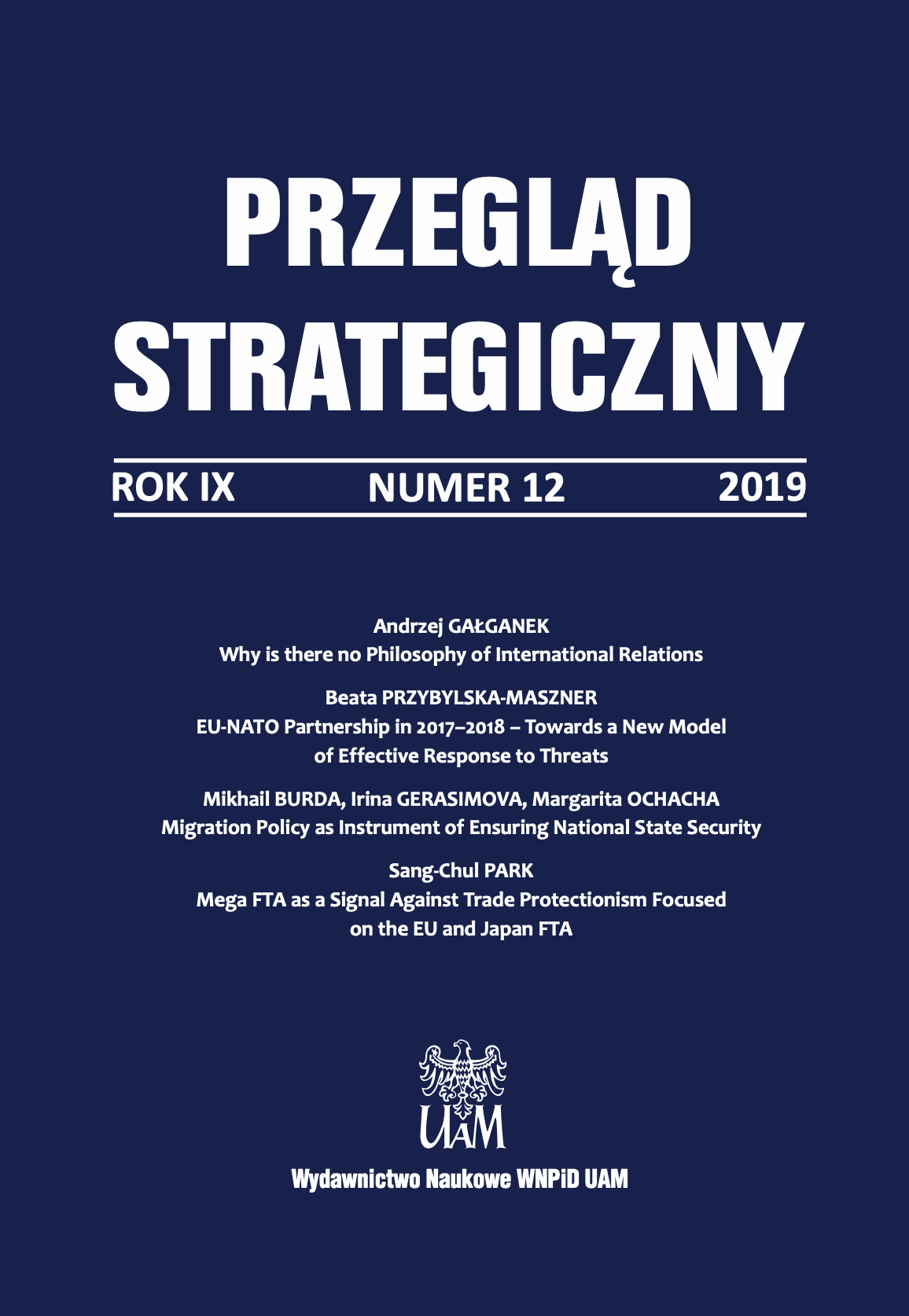
The research questions of the paper are whether the EU Japan FTA can be a win-win approach or win-lose approach? Moreover what are reasons for the two parties to complete the FTA and which industrial sectors can be mostly profited in both parties? Last, but not least how to esti- mate impacts on the global economy? The hypotheses are FTA can reduce trade protectionism, and the former can generate more economic benefits to the participating countries than latter in the long term based on the trade dynamic group. The research methodology is to use cross sec- tional analysis based on statistic data and information collection as well as trade policy analysis. Additionally, critical analysis of literature and inference analysis are employed. The conclusion of the research is that the EU Japan FTA can generate about 0.76 percent GDP growth to the EU and about 0.29 percent GDP growth to Japan additionally per year next ten years long. Furthermore, it also creates new employment in both parties. Although the EU Japan FTA can create some looser particularly in East Asian economies such as South Korea, China, and Taiwan, their total amount is estimated as very low. In the global economy, the EU Japan FTA can generate much larger gains than lost. As a result, it is not only a win-win approach for the EU and Japan, but also for the whole global economy if it enters into force.
More...
The main objective of this paper is to analyze Iran’s hydrological security and to verify the hypothesis that the low level of Iran’s hydrological security is one of the country’s most important ecological threats. An attempt to answer the following research questions is made using the quantitative method, decision-making method and institutional and legal analysis: (1) what water resources does Iran have, and are citizens suffering from a shortage of water?; (2) is the management of groundwater, closed reservoirs and rivers sustainable?; (3) do the actions of the Iranian authorities safeguard the hydrological security of the state? The analysis of the factors of Iran’s water security carried out in this paper leads to the conclusion that this country is facing a serious ecological crisis resulting from shrinking fresh water resources.
More...
The article concerns the problems of the global economic space in terms of its ecologization. In the conditions set by the modern concept of sustainable development, an important task is to study the theoretical and practical aspects of the process of the economic system ecologization, which is the purpose of this study. The article outlines the basic principles of the functioning and co-existence of the ecological and economic systems, presents the main models of environmental modernization of the economy (in particular, the models of sustainable consumption and production). The authors focus on the concept of “green growth” and generalize the analytical basis of the green growth strategy, in particular the necessary conditions and instruments of the state policy. Summing up, the authors highlight important and priority areas of ecologization of the economic development of society.
More...